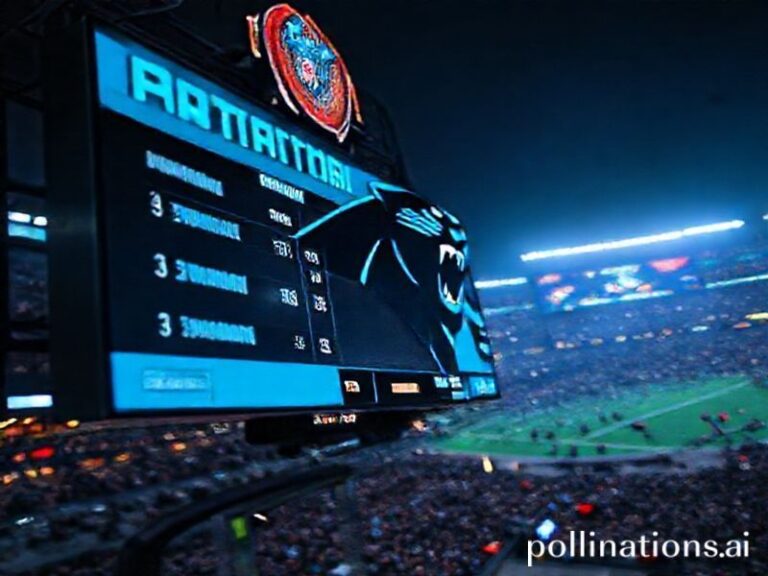White Sox vs Nationals: A Global Postcard from the End of Baseball’s Empire
White Sox vs Nationals: A Quiet Apocalypse in the Mid-Atlantic
By Our Man in the Cheap Seats, Somewhere between Geneva and Des Moines
Baseball, that most provincial of American pastimes, rarely registers on the global Richter scale. Yet here we are, watching the Chicago White Sox—once the pale hose of Comiskey, now the pale shadow of themselves—shuffle into Washington D.C. to face the Nationals, a franchise whose championship parade in 2019 feels as distant as the Treaty of Westphalia. To the rest of the planet, this is merely two underperforming capital-letter teams playing a children’s lawn game while the oceans acidify. To the connoisseur of late-imperial entropy, it’s practically opera.
Consider the geopolitical tableau. The White Sox arrive boasting a win-loss record that looks like a typo—23-35 at last count, or as EU trade negotiators might call it, “a modest Brexit surplus.” Their roster is a museum of what happens when analytics departments mistake probability for destiny. Meanwhile, the Nationals, defending a 27-31 ledger, have managed to make their 2019 World Series rings clang like alarm bells in an empty cathedral. Both clubs are orbiting the outer rings of the playoff picture with the enthusiasm of Sisyphus eyeing his next commute.
Across the Atlantic, Europeans who once pretended to care about the Yankees–Red Sox rivalry now shrug with the indifference of seasoned creditors. “It’s baseball,” mutters Klaus from Düsseldorf, nursing an Aperol spritz and existential dread. “They play 162 games, yes? Like the Bundesliga, only slower and with more spitting.” Klaus has a point. In a week when the G7 debates carbon tariffs and China rehearses amphibious landings, a mid-June tilt on South Capitol Street is roughly as urgent as a haiku recital on the Titanic.
Still, symbolism abounds if you squint hard enough. Chicago, that windy monument to late-capitalist contradiction—home to both the Mercantile Exchange and the most segregated neighborhoods north of Johannesburg—sends its South-Side emissaries eastward. Their uniforms, once black and white, now resemble a Rorschach test for the American condition. Washington, meanwhile, offers a capital city whose monuments loom like tombstones for bygone ideals, its team named after the very concept of nationhood that everyone inside the Beltway spends their days eroding. You couldn’t script the metaphor better if you were Bertolt Brecht with a DraftKings habit.
The game itself? A 4-2 Nationals victory, because of course the bullpen that coughed up leads like a chain-smoking tenor somehow held. Luis Robert Jr. hit a ball that Statcast clocked at 115 mph, which is also the speed at which global semiconductor supply chains are disintegrating. Joey Meneses—whose name sounds like a failed Cuban cryptocurrency—drove in the go-ahead run, prompting a smattering of applause from a crowd still figuring out how to pronounce “Cade Cavalli” without sounding like a maritime distress call.
In the press box, Japanese reporters politely feign interest while live-blogging Shohei Ohtani’s home runs 3,000 miles away. A lone Australian correspondent files 800 words on the curvature of Jesse Winker’s sunglasses, because that’s what passes for culture in the dispatches Down Under. Back home, the Chicago Tribune’s game story runs under the headline “Another Brick in the Wall,” which could refer to the Sox offense or the paywall they erected to keep readers from reading about it.
The broader significance? None, and therefore all. Two franchises drifting like post-industrial flotsam, playing out the string while the planet’s thermostat ticks upward. The final out triggers fireworks over the Anacostia, a ritual pyrotechnic shrug that illuminates the Capitol dome for roughly six seconds—about as long as the average attention span for democracy these days. Spectators shuffle onto the Metro, where the P.A. system warns of “significant delays,” a phrase now applicable to everything from climate policy to rebuilding the White Sox farm system.
In the end, the game will be forgotten by Tuesday, filed away in the annals of box-score oblivion. But somewhere in the International Space Station, an astronaut glances at the glowing archipelago of ballparks below and thinks, “Still playing.” That, dear reader, is both the triumph and the punchline. We persist, stubbornly, ridiculously, until the lights go out. Play ball—while you still can.







